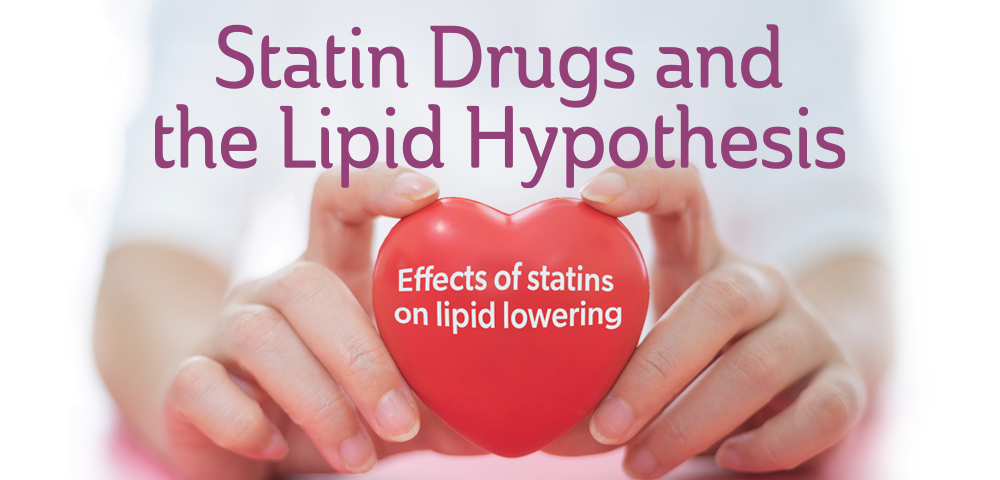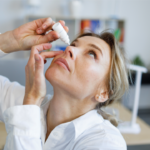
The results based on ARR suggest the benefits of statins are modest.
The “Lipid Hypothesis,” which suggests that LDL cholesterol is causally related to coronary heart disease (CHD), started gaining attention from the scientific community around 1951. It remained controversial for many years because of the lack of clear evidence. No individual study was compelling enough. In 1984, the NIH Consensus Conference still concluded that lowering LDL with statins could benefit CHD. Statins are prescription medications used to lower cholesterol levels. They function by reducing the amount of cholesterol produced by the liver and aiding the liver in removing cholesterol already in the blood.
STATISTICAL DECEPTION CREATES THE ILLUSION
Most studies supporting statin use are based on a statistical tool called relative risk reduction (RRR) to amplify the benefits and minimize risks. For example, if a heart attack occurs in 2% of patients in the placebo group and 1% in the drug-treated group, the RRR value would indicate a 50% reduction of the risk: 1 is 50% of 2.
Based on absolute risk reduction (ARR), the benefit to the treated population is one percentage point. This result is unlikely to generate enthusiasm from the stakeholders and the public. Most trials routinely report findings for the treatment benefits using RRR without the corresponding ARR benefits and risks.
A meta-analysis of 21 randomized trials published in JAMA examined the efficacy of statins in reducing total mortality and cardiovascular outcomes. The reduction based on ARR was 0.8% for all-cause mortality, 1.3% for myocardial infarction, and 0.4% for stroke, with RRR of 9%, 29%, and 14%, respectively. The results based on ARR suggest the benefits of statins are modest. This information should be communicated to patients in informed clinical decision-making and while deciding clinical guidelines and policies. Currently, one in four people over 45 years in the U.S., and one in ten in Canada, takes statins.
STATINS MAY MAKE YOUR HEART HEALTH WORSE
A report published in the Expert Review of Clinical Pharmacology found that statins may cause coronary artery calcification and impair muscle function in the heart and blood vessels through the depletion of CoQ10 and inhibit the synthesis of vitamin K2, a cofactor that protects arteries from calcification. Statins also inhibit selenium proteins, causing deficiency, a factor in congestive heart failure. The review suggested that the use of statin drugs could exacerbate the global epidemic of heart failure and atherosclerosis.
Health Canada warnings related to statins include rhabdomyolysis (muscle damage), myopathy (muscle pain), memory loss, interstitial lung disease, increased blood sugar, and diabetes. In the U.S., the Food and Drug Administration (FDA) warns about memory loss, confusion, increased blood sugar, and the risk of diabetes. The NIH warns that some statins cause rhabdomyolysis. Rhabdomyolysis can lead to permanent kidney damage, coma, and sometimes death, causing some statin drugs to be taken off the market.
Statin drugs do reduce cholesterol. They work by blocking the enzyme in your liver responsible for making cholesterol and, yes, your body makes cholesterol because it is essential for survival.
WHAT DOES CHOLESTEROL DO IN THE BODY AND BRAIN?
Cholesterol helps produce cell membranes and plays a role in hormone production, including testosterone, progesterone, estrogen, and bile acids for fat digestion. It is essential for the brain, which contains 25% of the body’s total cholesterol, and it is critical for brain cell connections that allow you to think, learn, and form memories. When cholesterol is reduced, these connections do not work well.
Supplement support to protect yourself if you are taking statin drugs
Coenzyme Q10 (CoQ10) Mitochondria are known as the powerhouse of the cell. They take energy from food and release it as adenosine triphosphate (ATP), which is necessary for muscle contraction, nerve impulses, and protein synthesis. Insufficient CoQ10 inhibits ATP production, and studies suggest that years of statin therapy could result in mitochondrial DNA damage, impairing muscle function in the heart and blood vessels.
Vitamin K1 is the principal source of dietary vitamin K and is needed for proper blood coagulation. Vitamin K2 is essential for avoiding calcium deposits in the arteries, preventing atherosclerosis-related cardiovascular disease, and building and maintaining strong bones. Vitamin K2 is a crucial cardiovascular health supplement.
Selenium – Statins can cause selenium deficiency, which has been implicated in developing myopathies. Heart failure induced by selenium deficiency, known as Keshan’s disease, a highly lethal cardiomyopathy, was first identified in the 1930s.
Vitamin D3 deficiency has been associated with hypertension, atherosclerosis, and heart failure. It plays a crucial role in cholesterol plaque vulnerability, and vitamin D3 deficiency associated with statin drug administration can accelerate atherosclerosis (which affects the brain).
Your health and well-being should be your top priority when taking any medication. Fortunately, numerous dietary supplements can significantly support your body and aid in reducing any side effects that may occur from medication (statin) use. Combining the right supplements with a healthy lifestyle can ensure better support for your body and overall health.












